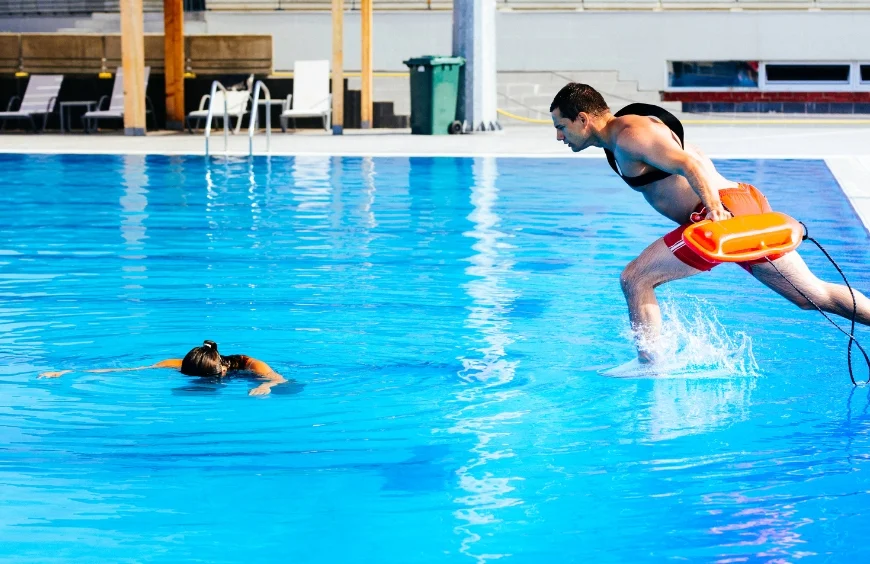Lifeguard certification is often misunderstood, leading to widespread misconceptions about the profession. In this article, we’ll debunk 11 popular lies surrounding lifeguard certification, shedding light on the reality behind this vital role.
Lie #1: Anyone Can Be a Lifeguard
Contrary to popular belief, not everyone can be a lifeguard. The Lifeguard certificate process involves stringent requirements, including swimming proficiency, CPR knowledge, and first aid skills. It’s a rigorous training program that ensures only qualified individuals become lifeguards.
Lie #2: Lifeguard Training Is Easy
Training is far from a walk in the park. It involves intense physical conditioning, theoretical knowledge, and simulated rescue scenarios. The comprehensive training equips lifeguards with the skills needed to handle diverse emergencies effectively.
Lie #3: It’s Just About Swimming
While swimming is a crucial skill, lifeguarding extends beyond the pool. Lifeguards are trained in surveillance, crowd control, and communication, making them versatile professionals capable of managing various situations.
Lie #4: Certification Lasts Forever
Contrary to the belief that lifeguard certification is a one-time achievement, it requires regular renewal. Lifeguards need to stay updated on the latest rescue techniques, CPR protocols, and first aid procedures to ensure they are well-prepared for any emergency.
Lie #5: Lifeguards Only Save Drowning Individuals
Lifeguards are trained to handle a wide range of emergencies, not just drowning incidents. From minor injuries to major medical crises, lifeguards are first responders capable of providing immediate assistance until professional medical help arrives.
Lie #6: Lifeguards Are Always on Duty
Lifeguards have specific shifts and off-duty periods. The public needs to understand that lifeguards are not omnipresent, and everyone must follow safety guidelines even when lifeguards are not on duty.
Lie #7: Lifeguards Are Only Needed at Pools
Lifeguards play a crucial role in various environments, including beaches, lakes, and water parks. Each setting presents unique challenges, and lifeguards are trained to adapt their skills to different scenarios.
Lie #8: Lifeguards Don’t Need First Aid Skills
First aid knowledge is a fundamental aspect of lifeguard training. Lifeguards are often the first responders in emergencies, and their ability to provide immediate care can make a significant difference in the outcome of a situation.
Lie #9: Lifeguarding is a Seasonal Job
While some lifeguard positions may be seasonal, many opportunities exist year-round. Indoor pools, community centers, and aquatic facilities often require lifeguards regardless of the season.
Lie #10: Certification Doesn’t Matter in Emergencies
Certification is crucial in emergencies. It ensures that lifeguards have the necessary skills to assess situations, make informed decisions, and provide timely assistance. Certification instills confidence in both lifeguards and the public.
Lie #11: Lifeguarding is a Lonely Job
Contrary to the misconception that lifeguards work in isolation, teamwork is a vital aspect of the job. Lifeguards collaborate with colleagues, emergency services, and other stakeholders to ensure a coordinated response to any incident.
Realities of Lifeguard Certification
Lifeguard certification involves a comprehensive process that covers swimming proficiency, rescue techniques, first aid, and ongoing training. It’s a commitment to maintaining a high standard of preparedness and professionalism.
Benefits of Being a Certified
Lifeguard Beyond the myths, being a certified lifeguard comes with numerous benefits. It’s a rewarding career that fosters personal growth, leadership skills, and a sense of responsibility. Lifeguards also gain valuable experience in teamwork and crisis management.
Also Read: What is an Accounting Assignment Helper and How Does It Actually Work
In The FInal End
Lifeguard certification is a vital qualification that goes beyond the misconceptions surrounding it. By debunking these 11 popular lies, we hope to provide a clearer understanding of the dedication and skill required to be an effective lifeguard.
How often do lifeguards need to recertify?
Lifeguards typically need to recertify every two years to stay updated on current practices and techniques.
Can anyone become a lifeguard, or are there age restrictions?
There are age requirements for lifeguard certification, usually starting at 15 or 16 years old, depending on the program.
Do lifeguards receive ongoing training after certification?
Yes, lifeguards participate in regular training sessions to stay sharp and updated on the latest safety protocols.
Are lifeguards trained to handle non-swimming emergencies?
Absolutely. Lifeguards are trained in first aid and CPR, enabling them to respond to a wide range of emergencies beyond water-related incidents.
What career opportunities are available for certified lifeguards?
Certified lifeguards can explore various career paths, including aquatics management, teaching, and even careers in emergency services.








Thanks for sharing. I read many of your blog posts, cool, your blog is very good.
Your point of view caught my eye and was very interesting. Thanks. I have a question for you.